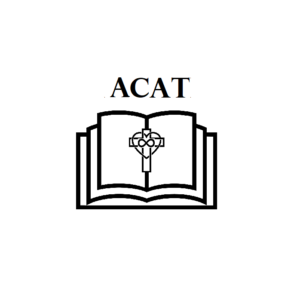|
Getting your Trinity Audio player ready...
|
Q: Of which must we take more care, our soul or our body?
A: We must take more care of our soul than our body.
Q: Why must we take more care of our soul than our body?
A: In losing our soul, we lose God and everlasting happiness.
For concrete, linear thinkers of the 21st century, these statements beg for argument. We are conditioned to see body and soul as interconnected, if not equal in importance. How many products and services assert their superiority by being “good for body and soul”? Moreover, the principle of self-care has gained great support in recent years. Few can argue with “you cannot pour from an empty cup” and “taking care of yourself shows self-respect,” and those of us on the spectrum know that anxiety and constant self-monitoring takes a hard toll on our physical health.
It is the phrasing of the Baltimore Catechism that is dated – but not the message. The original writers would likely be just as confused by our contemporary notions of wellness and holistic perspective. If we keep reading, we see the context in which the writers felt this was important enough to put this at the top of the hierarchy: “In losing our soul, we lose God and everlasting happiness.”
Losing our soul does sound frightening. But… how did we get there in just one question? And where is the accompanying information, such as:
- How can we take care of our soul?
- What happens if we neglect our soul’s care?
- What courses of action are harmful to our soul, or place our soul at risk?
- What can we do to correct lapses in soul care?
- Is our soul’s care completely in our control, or is it affected by outside forces?
- Does taking care of our body somehow interfere with taking care of our soul?
- How can we take care of our body without compromising our soul?
- How exactly is a soul lost?
- If a soul is lost, can it be recovered?
As we progress on our journey into the Baltimore Catechism, it becomes more and more apparent that writers take a very parental tone. This is not at all surprising, considering the structure of the Catholic Church is often seen as parental. In the historical time periods when parental authority held high esteem, this analogy was coherent and harmonious with the prevailing culture. In the past sixty years, however, Western culture has seen a huge shift in how parenting is viewed. Individuality and personal choice is championed over obedience and the sense of being shepherded. In part, this is why many of us feel such a disconnect with Catholic catechesis. We are conditioned to question authority before deciding how we feel about something. But aren’t there still matters where the voice of authority takes precedence over values clarification, particularly where danger is concerned? It would not be useful to question the declaration of a state of emergency, for instance. Doing so would put our lives in danger and unnecessarily deter others in their ability to seek safety. If we give the writers the benefit of the doubt, perhaps they felt it more important to get our attention right to the point rather than lose us in a logical but lengthy buildup.
Our over-arching question here is whether or not those questions above are addressed anywhere later on, or if we are simply expected to take this by itself, without elaboration, as a warning given in our best interests. The Baltimore Catechism does get into these things, but in a way that is widely distributed throughout the contents of the document, not as directly as we asked them. Therefore, we will take these questions on in the coming weeks’ posts before going any further.
Keep in mind our purpose remains to create a Catholic catechetical commentary compatible with autistic thinking. If anyone wishes to take a more direct route and, say, look at a more up to date catechism, the Vatican website offers the most contemporary catechism at: http://www.vatican.va/archive/ENG0015/_INDEX.HTM. Another good resource is the Youth Catechism, YOUCAT, easily found by online search in print and electronic formats. We assure readers that the Church is not hopelessly dated and out of touch; we simply chose to use a catechism in the public domain. Bear in mind it is not the Church or its catechism which has changed over the years; it is the diversification of the ways people think. Including autistically.

